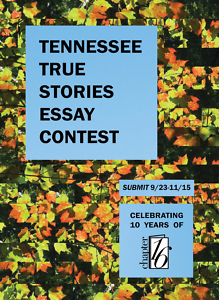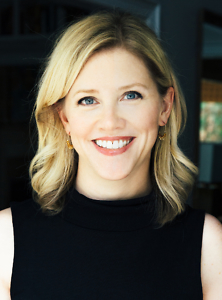Submissions to the Tennessee True Stories Essay Contest are currently closed. We’ll be announcing a new contest in the months ahead. Subscribe to the Chapter 16 newsletter for updates.
We’re delighted to announce that the winners of the Tennessee True Stories Essay Contest are:
“Grasshopper” by Yurina Yoshikawa (1st prize)
“Close Call” by Richard Albins (2nd prize)
“Three-Day Business Trip” by Mirsad Kulovic (3rd prize)Congratulations to the winners, and many thanks to all the writers who entered. It was a privilege to read your stories.
Welcome! We look forward to reading your essay. Here are the contest rules:
- The contest is open to all Tennessee writers age 16 and older who don’t have a traditionally published book.
- The essay must be your own original work, and it cannot be previously published in any way.
- The essay should be narrative in nature — no opinion pieces, self-help, or literary criticism. The story must be true.
- The length should be under 1500 words.
All submissions will be considered for possible publication at Chapter 16. The first-place winner will receive $250 and publication on the site. The second- and third-place winners will be awarded $125 and $75, respectively, and their essays will be published, as well. All the winners will also be paid $100, Chapter 16‘s standard rate for essays. The writers retain all rights. Prize winners agree to allow Chapter 16 to publish their essays and keep them on the website indefinitely.
The final day to submit an essay to the contest is November 15, 2019. Winners will be announced in January 2020.
Ready to submit your essay? Please send it to us via the form on our contact page. The subject line should be “Tennessee True Stories Essay Contest submission.” Tell us in a line or two about your connection to Tennessee. Below that, paste your entire essay into the message form. We will notify winners via email. Please make sure the return address you use on the form is one where you can be readily contacted.
Questions? See the FAQs below. If you don’t find an answer there, feel free to send us a message.
About our judge:

The Tennessee True Stories Essay Contest will be judged by Mary Laura Philpott, the author of I Miss You When I Blink, a nationally bestselling memoir-in-essays. Additionally, Mary Laura is the author and illustrator of the book Penguins with People Problems and serves as the “book enthusiast at large” for Parnassus Books in Nashville, where she was the founding editor of the digital magazine MUSING. She’s an Emmy Award-winning cohost of Nashville Public Television’s A Word on Words and writes periodically for publications including The New York Times. Her writing also appears in such outlets as The Washington Post, The Paris Review Daily, and O The Oprah Magazine. Across her work, Mary Laura examines the overlap of the absurd and the profound in life, literature, and culture. She enjoys traveling around the country to speak with people about creativity, work, reinvention, reading, and writing. She lives in Nashville, Tennessee, with her family.
FAQs
Who counts as a Tennessee writer?
Anyone with a significant personal connection to the state is a Tennessean in our book. If you are a resident or former resident, a native of the state, or received your education in Tennessee, you qualify.
Does my essay have to be about Tennessee?
No. We’re open to all subjects and settings. You are what makes it a Tennessee story.
I have a traditionally published book. Why can’t I enter this contest?
We love our Tennessee authors, and we welcome regular essay submissions from them. This contest is intended to give a boost to less established voices.
My story is based in fact but has fictional elements. Can I submit it to the contest?
No. Chapter 16 essays are strictly nonfiction. We wish you the best of luck in placing your fiction and hybrid work elsewhere.
I’m not really sure what you mean by a “narrative essay.” Can you explain a little more?
A narrative essay can take many forms, but it always has a story at its core. You can see some good examples on our site — try here, here, here, and here. We are open to all styles of storytelling, as long as the work is accessible to a general audience.